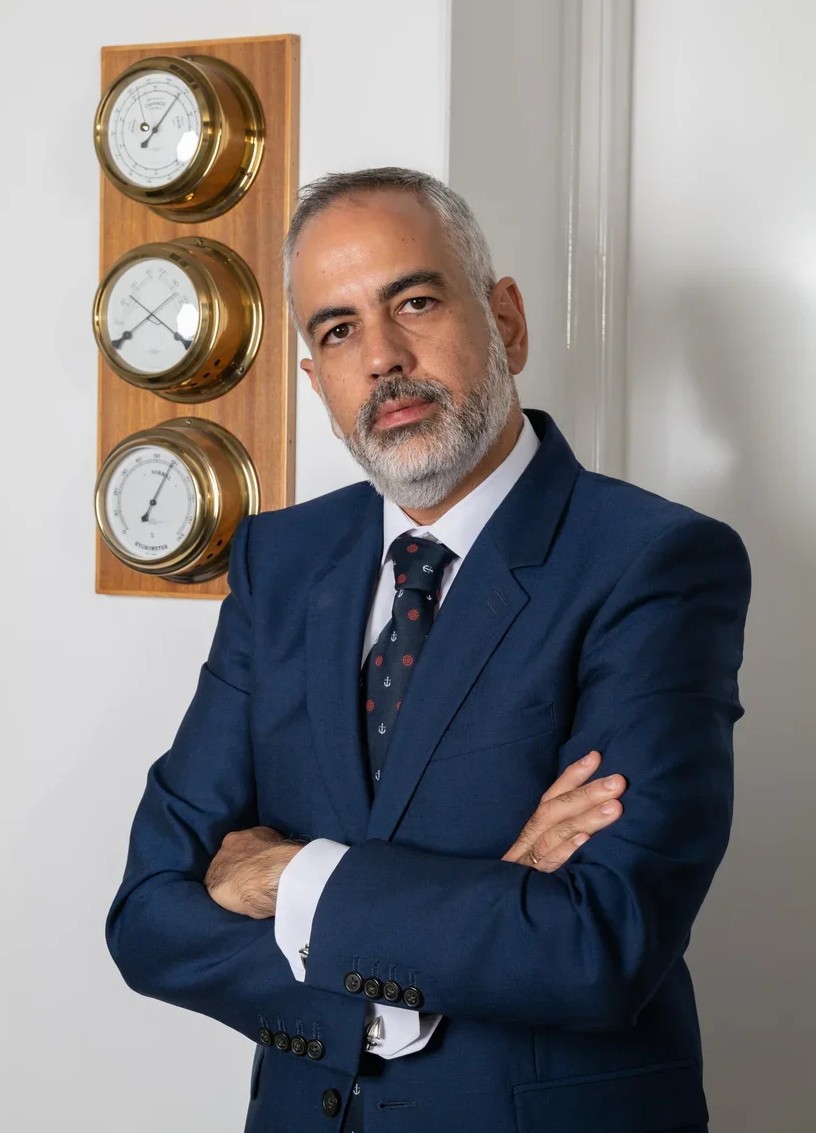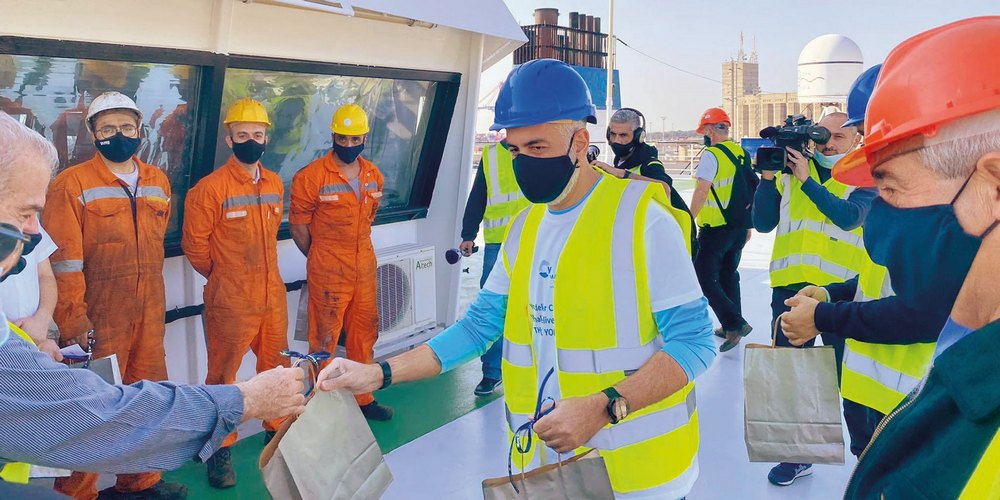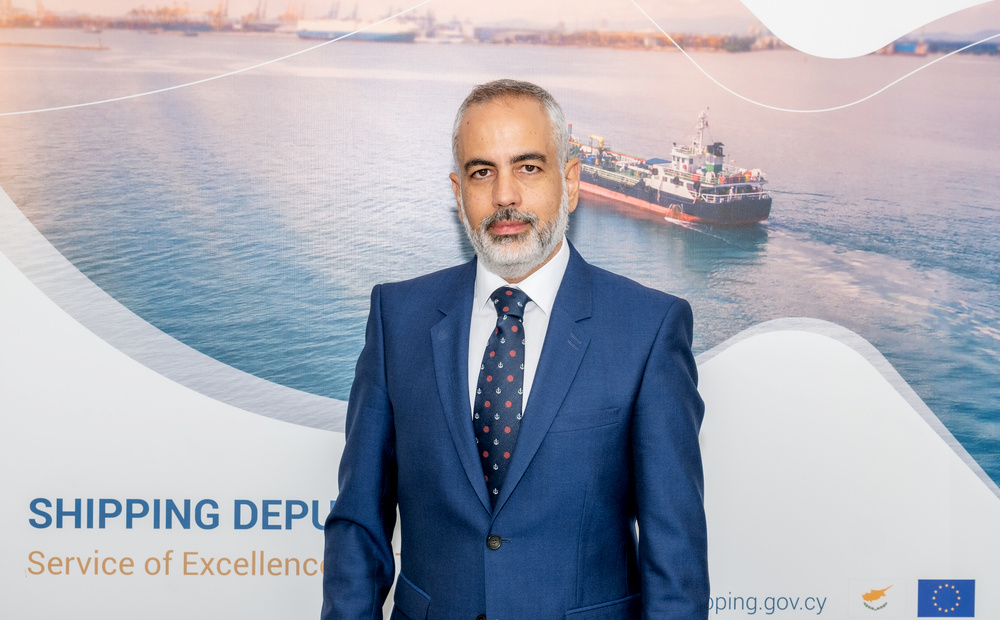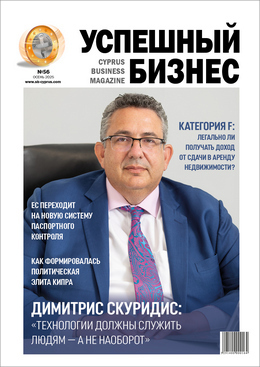 Shipping plays an important role in Cyprus, we are proud that our small island’s registry ranks 11th globally and 3rd in the EU. Successful Business has met with Deputy Minister of Shipping Vassilis Demetriades to discuss how sustainable shipping is, given the troubles of 2020, and how the shipping industry of Cyprus can be supported and developed.
Shipping plays an important role in Cyprus, we are proud that our small island’s registry ranks 11th globally and 3rd in the EU. Successful Business has met with Deputy Minister of Shipping Vassilis Demetriades to discuss how sustainable shipping is, given the troubles of 2020, and how the shipping industry of Cyprus can be supported and developed.
Could you please share an overview of what has been done at the Deputy Ministry during 2020, an extremely difficult year?
As you rightly mentioned, this year has been very challenging because of the pandemic, which severely impacted the shipping industry and its operations with great difficulties in crew changes and in the repatriation of seafarers. Despite the problems, Cyprus shipping has proven to be resilient. The income derived from shipping has remained at the same level as last year. The contribution of the shipping sector to Cyprus economy is approximately 7% of the GDP.
During 2020, the number of shipping companies registered under the tonnage tax system has increased to 243. There is also a steady increase to the number of Cypriots following seafaring studies at the Marine Academies, both in Cyprus and in Greece. Around 55,000 seafarers are working on board Cyprus-flagged ships. Due to the pandemic, we were not able to implement our promotion plan for Cyprus shipping this year, but we have worked internally to introduce new incentives in an attempt to further increase the competitiveness of Cyprus shipping.
With regard to the national shipping policy, have you had to adjust it according to the current global situation?
The Covid-19 crisis has resulted in the rapid advancement of technology, since shipping industry was forced to embrace digitalisation and adapt quickly to new technologies. For us in the Shipping Deputy Ministry, the period of Covid-19 is considered as a challenge in ensuring the continuous and uninterrupted services to our customers.
The Shipping Deputy Ministry has made significant progress to simplify formalities and transform its services to a paperless environment that will increase efficiency and attractiveness of the Cyprus Registry and its relevant services.
We are in the process of formulating a roadmap of actions that will turn all our services digital, creating the framework conditions for the Shipping Deputy Ministry to support the concept of one-stop shop. The one-stop shop will further increase our efficiency but direct communication will not be undermined. On the contrary, the Deputy Minister and all the Officers will always be available to provide quality and fast service to the resident shipping community. Human relations and personal contacts are our strong assets. It is part of our mindset. Even if the shipping community is served digitally, I will continue knocking at their door (laughing) to make sure that they receive the best possible service, and seek valuable feedback from them.
One of practical questions coming from the community has to do with the spouses of those who work in the shipping industry. The government has recently relaxed the regulations for IT professionals employed here, giving their spouses the opportunity to work. Are there any similar plans for the spouses of shipping professionals, any incentives that might help them to be able to work in Cyprus and contribute to the society?
This is an issue that we have to evaluate together with all the other competent authorities in Cyprus. I am willing to address it once we have a clear picture through a thorough impact assessment.
I cannot help but ask a question about the Covid-19 vaccination programme. There is a list of vaccination priority groups. Are seafarers among those as well?
Cyprus was one of the first countries worldwide that recognised seafarers as essential workers and introduced practical measures for crew changes. Since May 2020, around 5,000 seafarers have been repatriated or have been able to return to work through Cyprus. When it comes to vaccines, which is a complex issue in terms of logistics, we are actively involved in all the deliberations at global and EU level for a collective and coordinated approach. We are in search for the most efficient and practical solution.
Cyprus believes that it should be a distinction and a different approach for short sea and deep sea shipping. For short sea shipping, national measures appear to offer a better fit and regional co-operation might be easier to achieve. On deep sea shipping, issues such as the country of origin of the seafarers, transport (air travel restrictions, etc.) issues, availability of vaccines, the two-stage vaccination process and the subsequent time required for a seafarer to be considered inoculated, are potentially a logistical nightmare. For this reason, Cyprus believes that vessels operating in longdistance intercontinental routes should be considered an isolated Covid-19 zone, a "bubble", hence the focus should be on seafarers ashore. In this respect, Cyprus proposes a coordinated global approach to ensure that adequate number of vaccines for seafarers are available to the country of origin of seafarers.
The global crisis with crew changes has affected almost every shipping company. Do you think Cyprus could play a more significant role here and eventually become a regional crew-change centre?
It depends on many parameters such as the epidemiological situation, not only in Cyprus but in other major destinations, flight connections to and from Cyprus, etc. I have expressed to all interested parties (IMO, EU, ICS) our readiness and determination to work constructively towards facilitating crew changes. We are ready to listen and evaluate suggestions and proposals and to incorporate them, to the maximum extent possible, in our national policy.

In recognition of all the hard work and commitment from seafarers over the past year, the Cyprus Shipping Deputy Minister, Mr Vassilis Demetriades, visited the port of Limassol to thank seafarers in person ahead of Christmas.
Let us talk about education. Cyprus plans to increase the number of educational facilities for seafarers. What are the strategic priorities here? What is your take on the potential cooperation with well-known foreign institutions that could bring their expertise to Cyprus universities and schools, to facilitate the development of maritime education in Cyprus?
I believe that we should first focus on building a new culture for seafaring and maritime professions in Cyprus. We are an island, a leading maritime center with a competent and reputable shipping industry. It is an absolute must to change the mindset of young people in order to acknowledge and promote the blue growth potential. In the forthcoming weeks, we will launch a campaign targeting students at secondary schools at the age of 15 that are in the process of evaluating several options for their education career path.
Our campaign will be innovative and interactive, including a questionnaire and a possibility for a oneweek training at our premises, in a shipping company, and on board a vessel in the framework of a port state control inspection. The aim is to get a firsthand knowledge and a better understanding of the different aspects of the shipping sector (operational, commercial, legal, technical) and possibly consider shipping as one of their potential options for educational career path.
We also need to bring closer all the academic institutions with the shipping industry to develop a curriculum that reflects the new trends in shipping, incorporating the green and digital transformation of the sector. Shipping is a conservative industry, but we have to inject it with new and innovative approaches in order to respond to new developments and challenges. I can also refer to the overall strategy we are preparing.
Of course, please, tell us about the strategy you are working on.
A maritime nation like Cyprus must have a clear orientation for the future development of the shipping sector in order to ensure that Cyprus has a leading role and involvement in the formulation of the global and European maritime agenda. Cyprus shipping has to be competitive, strong and resilient to crisis, and proactive to challenges and new trends. The plan is to present the strategy in the framework of the Maritime Cyprus Conference scheduled to take place on 10 October 2021.
What is the Deputy Ministry doing in order to make Cyprus, both the flag and the jurisdiction, an attractive destination for superyachts?
The European Commission has recently adopted a decision on the prolongation of the Cyprus Tonnage Tax System for another 10 years. This demonstrates that our fiscal environment is stable, providing certainty to the shipping community and to new potential foreign investors in shipping. We are also launching a range of green incentives to reward vessels implementing measures to reduce environmental impact. Annual tonnage tax will be lowered by up to 30% for each vessel that is able to demonstrate genuine emissions reductions.
Pleasure crafts and yachts are a segment that we would also like to place emphasis on. In the first quarter of 2021 ,we will adopt a special registration policy for yachts, introducing a special attractive provision for the yachting industry.
Would the Deputy Ministry be participating in the development of the Larnaca port and marina, a project that is expected to have a profound impact on Cyprus economy?
The responsibility for the national ports policy lies with the Ministry of Transport, Communications and Works. I am a strong believer in a holistic approach, which is an important parameter to have an integrated maritime cluster. The shipping industry needs an efficient ports sector. In this respect, all the relevant public authorities are coordinating efforts to ensure that any port-related projects will be conducted in a way which serves the shipping industry and all other industries and services that are part of the supply chain.
You have probably heard about our recent project to re-establish the maritime link between Cyprus and Greece. We have recently launched an open tender procedure. The aim is to provide alternative connectivity for our citizens; it is also a way to bring people closer to the sea. I would like to encourage maritime transport operators to participate in the tender procedure. The plan is to operate this link next summer (around May-June 2021).
On behalf of Successful Business magazine and its readers I would like to thank you for your time and for sharing your plans and strategies. What would you like to wish for 2021 to the business community, to all the expats living in Cyprus?
I wish to all expats a healthy and prosperous 2021. As Shipping Deputy Minister, I would like to thank the business and shipping community their trust in Cyprus shipping and to promise that we will continue providing professional, fast, efficient, and quality service to them.
My door is always open for the shipping and business community. All expats that are part of the Cyprus shipping community are not just customers but members of the big shipping family of Cyprus, we treat them as partners and ambassadors of Cyprus.

Vassilis Demetriades has been Shipping Deputy Minister to the President since 10 July 2020. Prior to his appointment, he served as a Policy Officer in the Directorate General of Mobility and Transport of the European Commission, dealing with the coordination of the EU maritime transport strategy and EU's external maritime transport relations for 5 years.
He was previously involved in the promotion of EU sustainable shipping initiatives through the coordination of the European Sustainable Shipping Forum. He also served as a Member of Cabinet of Commissioner Vassiliou, responsible for Education, Culture, Multilingualism, and Youth; as a Maritime Counsellor of Cyprus to the EU (2004-2008), and as the Head of EU Affairs at the Cypriot Ministry of Communications and Works (2009-2013), coordinating the Cyprus Presidency to the EU in the areas of transport, telecommunications and integrated maritime policy.
Vassilios Demetriades was born in 1972 in Limassol. He studied Economics at the University of Surrey and then acquired an MSc in Management Science. He is married and has two children.






